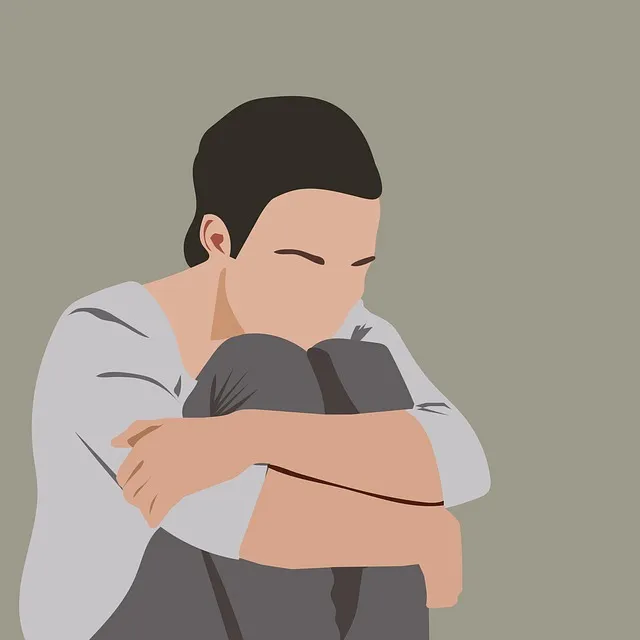Kaiser's Littleton mental health facility offers comprehensive community outreach programs addressing healthcare disparities. These initiatives include public awareness campaigns, education sessions, and tailored conflict resolution, ensuring sustainability through burnout prevention for healthcare providers. Their inpatient services provide intensive care and specialized support, fostering mental health awareness and open dialogue in the community. For lasting positive outcomes, these programs must understand local needs, promote self-care, integrate stress reduction methods, and advocate for mental health policy changes, with success measured through emotional intelligence building, community engagement, and regular evaluations over time.
Community outreach programs play a pivotal role in bridging healthcare gaps, especially in urban areas like Littleton. This article explores how such initiatives can significantly impact mental well-being, focusing on Kaiser’s inpatient mental health services as a case study. We’ll delve into the definition and goals of community outreach, examine successful strategies, and discuss key performance indicators to measure their effectiveness, specifically examining Kaiser’s presence and impact in the Littleton area.
- Understanding Community Outreach Programs: Definition and Goals
- Kaiser's Inpatient Mental Health Services in Littleton: An Overview
- Implementing Effective Outreach Strategies: Key Considerations
- Measuring Success: Evaluating the Impact of Community Outreach Programs
Understanding Community Outreach Programs: Definition and Goals

Community outreach programs are strategic initiatives designed to bridge the gap between healthcare services and underserved populations. At its core, community outreach involves direct engagement with individuals and communities to address health disparities, promote wellness, and enhance access to care. For organizations like Kaiser, which operates an inpatient mental health facility in Littleton, these programs play a pivotal role in achieving broader community well-being.
The definition of community outreach goes beyond simply providing healthcare services; it encompasses public awareness campaigns development, education sessions, and even conflict resolution techniques tailored to the unique needs and cultural contexts of targeted communities. By integrating burnout prevention strategies for healthcare providers into their outreach efforts, organizations like Kaiser can ensure that their engagement is sustainable and effective. This holistic approach not only improves health outcomes but also fosters stronger community connections.
Kaiser's Inpatient Mental Health Services in Littleton: An Overview

Kaiser’s Inpatient Mental Health Services in Littleton offer a comprehensive and compassionate response to individuals experiencing severe mental health crises. This specialized care setting is designed to provide intensive support, ensuring stability and recovery for patients. The program focuses on a multifaceted approach, incorporating therapeutic interventions, medical management, and resilience-building strategies tailored to each patient’s unique needs.
The services available at Kaiser Littleton cater to a range of mental health conditions, promoting a safe and supportive environment for healing. Through dedicated staff and advanced treatment modalities, they aim to enhance Mental Health Awareness and foster a culture of open dialogue. Additionally, their Inpatient Mental Health Services contribute to the production of a successful Mental Wellness Podcast Series, sharing stories of recovery and resilience, thereby further enriching the community’s understanding of mental wellness.
Implementing Effective Outreach Strategies: Key Considerations

Implementing effective community outreach programs, such as those focusing on mental health support in areas like Littleton where organizations like Kaiser have inpatient facilities, requires careful consideration. Key factors include understanding the local needs and cultural context to ensure that services are relevant and accessible. For instance, programs should promote self-care routine development for better mental health, integrating stress reduction methods tailored to the community’s unique challenges.
Additionally, advocacy efforts through mental health policy analysis can amplify outreach initiatives. By engaging with local policymakers, organizations can drive changes that improve access to care, address stigma, and enhance overall well-being. This holistic approach—combining direct service provision, self-care promotion, and policy advocacy—is crucial in achieving lasting positive outcomes for the community, including those who may be hesitant to seek help due to fear or cultural barriers.
Measuring Success: Evaluating the Impact of Community Outreach Programs

Measuring the success of community outreach programs is paramount to understanding their true impact and effectiveness. It involves a multifaceted approach that goes beyond simple attendance numbers or short-term engagement. For initiatives like Kaiser’s inpatient mental health services in Littleton, evaluating success could mean tracking improvements in emotional intelligence and resilience building within the targeted communities over an extended period. This might include measuring changes in local perceptions of mental wellness through surveys and feedback from participants, as well as quantifying the number of individuals who access ongoing support or incorporate learned strategies into their daily lives.
The Emotional Intelligence and Resilience Building components, for instance, can be assessed through regular evaluations that capture shifts in individual and collective emotional awareness, coping mechanisms, and problem-solving skills. Additionally, Kaiser’s Mental Wellness Podcast Series Production could serve as a valuable metric by gauging the reach and engagement of these educational resources, ultimately contributing to a holistic understanding of the program’s overall success and influence on the community’s mental wellness landscape.
Community outreach programs, such as those offered by Kaiser’s Inpatient Mental Health Services in Littleton, play a pivotal role in enhancing access to healthcare. By implementing effective strategies and measuring their impact, organizations like Kaiser can significantly improve community well-being. These initiatives ensure that mental health services reach those who need them most, fostering healthier and more resilient communities. Using evidence-based approaches and adapting them to local needs, as Kaiser has done in Littleton, is crucial for creating sustainable positive change.






